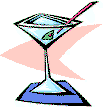The final cocktail
 The final cocktail we call “water” is complex and, as we have seen, varies with atmospheric and local land conditions. In general, water from our tap will contain:
The final cocktail we call “water” is complex and, as we have seen, varies with atmospheric and local land conditions. In general, water from our tap will contain:
major ions such as sodium, potassium, magnesium, calcium, sulphates, chlorides and hydrogen carbonate. These are usually present in quantities of at least 1 mg/l. All of these ions play a major role in the water chemistry of the fish pond and in many biological functions. They help determine both pH and water hardness, which are important to fish.
- Key nutrient ions, such as phosphates and nitrate. The concentrations of these are generally lower than those of the major ions and play a major role in algae growth.
- dissolved gases, which include oxygen and carbon dioxide.
- trace ions, such as copper, iron zinc, fluoride, cobalt and molybdenum, which are important in minute amounts, but can be toxic to fish at higher levels
As fish-keepers we do not need to know the full composition of the water that we use for our ponds. The important message is that tap water is not a simple substance. What we call water is really a weak solution of several dozen dissolved substances, some beneficial to fish, some not. (This remark applies to humans, too. Water Boards everywhere devote a lot of effort to ensuring that water is fit for human consumption.) When we talk about water chemistry or water quality, what we are really talking about is the variety and quantities of these various substances, the reactions between them and their combined effect on the health and well being of our fish.
So water is variable and has a major influence on aquatic inhabitants. It is worth recalling that this is of importance to we fish-keepers because fish are “open” systems, and are strongly affected by the composition of the water in which they live. We have seen that tap water is complex, and is further complicated by changes taking place in the pond. Whether the water coming out of the tap is of poor or good quality depends largely on your geographical location but it is fair to say that most poor water quality in fish ponds arises from what happens in the fish pond, and is not due to poor supply quality.
